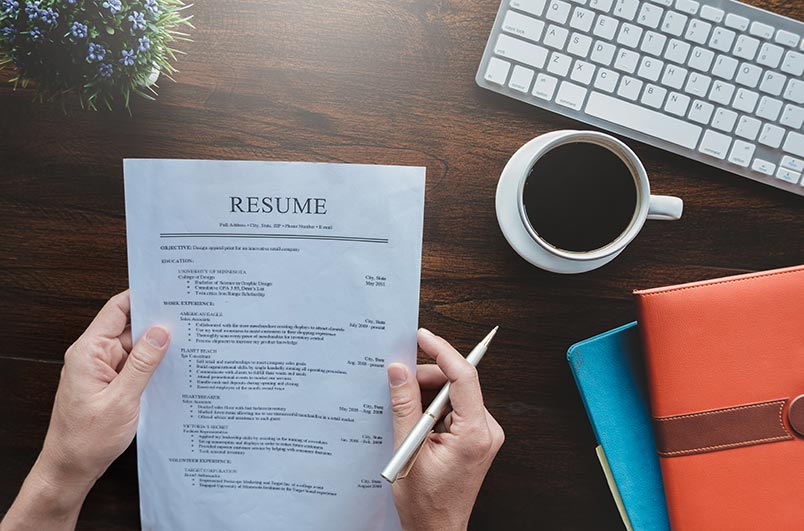The COVID-19 Global Pandemic seemed to come from nowhere. Just as we thought we were chugging along quite nicely, it crept up and went, whammo!
We didn’t see that coming!
Within a week, more than 700,000 Australian jobs were lost and by June 2020 Australia was officially in its first recession in almost 30 years.
If you lost your job during the year we’d-all-like-to forget, the good news is that our economy – and our job market – are already picking up.
According to the Australian Bureau of Statistics (ABS), Australia’s January 2020 unemployment rate was 5.2%. By December 2020, it was up to 6.6%.
However, by May 2021 the unemployment rate had dropped to 5.1% and the ABS was reporting a surge in job vacancies across industries like retail, administration, mining and utilities, to name just a few.
Even so, there are plenty of people looking for these jobs.
Here are 5 tips to help get your resume to the top of the candidate pile.
Get the basics right
Spelling and grammar really do matter. Ensure your resume and cover letter are grammatically correct and your spelling is spot on.
Don’t rely on spell checkers. They recognise real words but can’t know whether, weather or wether, your, yore or you’re meaning their, there or they’re.
Do your homework and make sure you know which is witch!
Play to your strengths
What are you good at? Hint: it’s usually something you enjoy doing. Look for roles that call for your stand-out skills.
Alternatively, hop onto a job-seeker website and research the skills employers are looking for. Do you have them? If not, move to point 3.
Skills and training
Upskilling or refreshing old skills is easier than ever before with organisations offering online training programs to get you up and job ready.
If you’re considering a career change, compare skill-sets between roles. Your current skills may well be transferable across industries.
Reach out
Contact organisations you think your skills will suit. Chat to your network of friends or to people already working in your desired industry and ask their advice.
Find out if there are roles available and whether you’d be a suitable candidate.
Consider engaging a career mentor or life coach, particularly helpful if you’re thinking about a career change.
Research
When applying for roles, research the company and find out its industry, culture and structure.
Once you have an interview lined up, research the people you’ll be meeting with. LinkedIn is a terrific resource for this!
Researching will help you to understand the organisation and people, and whether you’d be comfortable working with them.
Economic indicators are pointing to Australia making a faster than expected recovery from the trials of 2020, and recruiters are already reviewing their candidate lists.
Check out LinkedIn.com or Seek.com.au for learning and job opportunities. Additionally, investigate your local TAFE or community groups for courses.
With 2020 in the past, now’s the time to look to a brighter future. Refresh those skills, spruce up your resume, and present your best self.
This article contains information that is general in nature. It does not take into account the objectives, financial situation or needs of any particular person. You need to consider your financial situation and needs before making any decisions based on this information.

